Cambridge Healthtech Institute ’s 2nd Annual
Advances in Recovery and Purification
20-21 March 2019
Cambridge Healthtech Institute’s Advances in Recovery and Purification meeting brings together industry and academia to discuss the latest developments in the capture, recovery and purification of biotherapeutics, with data driven case studies on
next-generation technologies and strategies in affinity chromatography, clarification, depth filtration, new membranes, flocculation, as well as DSP strategies for emerging modalities such as gene therapies, bispecifics, fusion proteins and antibody
fragments. How do your strategies compare?
Final Agenda
Wednesday, 20 March
10:00 Registration Open
10:30 Coffee Break in the Exhibit Hall with Poster Viewing
11:15 Chairperson’s Remarks
Manuel Carrondo, PhD, Professor of Chemical and Biochemical Engineering, FCT-UNL; Vice President, IBET
11:20 Bioprocessing Innovations in the Era of Clinical Acceleration and Process Intensification

Stefanos Grammatikos, PhD, Vice President, Head, Biotech Sciences, UCB Pharma
Current trends in clinical development acceleration and bioprocess intensification impose an unprecedented compression of CMC development timelines and new bioprocessing challenges downstream of the cell culture bioreactor. In this talk I will present
a series of innovations we have introduced, some incremental and some potentially disruptive, in an effort to avoid further complications while rising to the latest challenges of bio CMC development and bioprocessing.
11:50 Opportunities and Challenges in CAR T Manufacturing
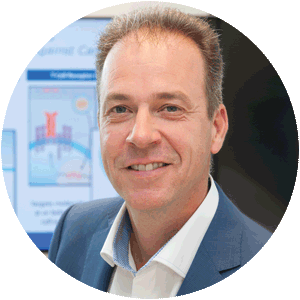
Markwin Velders, PhD, Vice President, Operations, Managing Director, Kite Pharma EU B.V.
Update on the status of CAR-T development for use in the treatment of cancer. The success story of this paradigm shift and the challenges and opportunities that lay ahead for this therapy will be presented and discussed.
12:20 Session Break
12:30 Bridging Luncheon Presentation (Sponsorship Opportunity Available) or Enjoy Lunch on Your Own
13:00 Session Break
13:40 Chairperson’s Opening Remarks
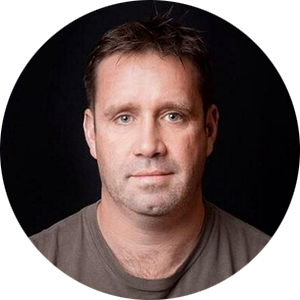 David O’Connell, PhD, Lecturer in Biotherapeutics, School of Biomolecular & Biomedical
Science, University College Dublin
David O’Connell, PhD, Lecturer in Biotherapeutics, School of Biomolecular & Biomedical
Science, University College Dublin
13:45 FEATURED PRESENTATION: High-Throughput Parallel Chromatography: A Valuable Tool for Non-Platform Process Development of Complex Proteins
 Thomas Gatternig, Lead, High-Throughput Downstream Process Development, PD.AT, R&D Pharmaceutical Science, Baxalta
Innovations GmbH, part of Takeda
Thomas Gatternig, Lead, High-Throughput Downstream Process Development, PD.AT, R&D Pharmaceutical Science, Baxalta
Innovations GmbH, part of Takeda
14:15 Validation of Next-Generation Depth Filter Technology in a Commercial Downstream Process
 Bram Vivijs, Process Engineer DSP, MSAT, Sanofi
Bram Vivijs, Process Engineer DSP, MSAT, Sanofi
Recently, depth filter clogging occurred during the clarification step of our at-scale manufacturing process when loaded at the maximal volume. Thorough root cause analysis was performed and several alternative depth filters were screened during small-scale
experiments. A suitable, state-of-the-art depth filter was identified and implemented at-scale following a successful Process Performance Qualification (PPQ) campaign.
14:45 Centrifugation Scale-Up Modelling
 Daniel Kronberger, PhD, Head, Downstream Pilot, Process Science, Boehringer Ingelheim
Daniel Kronberger, PhD, Head, Downstream Pilot, Process Science, Boehringer Ingelheim
In bioprocess development centrifugation steps continue to be a major element of uncertainty during scale up. Varying centrifugation performance causes differences in product recovery and purity and may interfere with subsequent unit operations such as
depth filtration or inclusion body solubilization. The main cause for performance variance lies in the different types of centrifuges and separators that are in use at different scales. Current scale up strategies are only effective if both devices
are functionally identical. However, most construction types are either principally not suitable or not obtainable for all scales.
15:15 Raman Monitoring of Downstream Bioprocesses: Opportunities to Fix Analytical Bottleneck
Christophe Bonneville, President, RESOLUTION Spectra Systems
In-line Raman spectroscopy demonstrates strong capabilities to monitor key parameters, such as structure and conformation of proteins, titer, purity, enabling to monitor some downstream processes. From a QC perspective, this technique is also efficient
to quickly control product CQA. However, in order to widely implement this technology, some issues need to be carefully taken care of: validity, robustness and transferability of models over time, process evolution and devices. We will present
opportunities based on examples.
15:45 Refreshment Break in the Exhibit Hall with Poster Viewing
16:25 Removal of High-Molecular-Weight Species by Protein A Chromatography
 Daniëlle van Wijk, PhD, Lead Scientist, Downstream Processing, Synthon Biopharmaceuticals
Daniëlle van Wijk, PhD, Lead Scientist, Downstream Processing, Synthon Biopharmaceuticals
In this study, the potential of Protein A chromatography to separate antibody monomer from HMW species was investigated. A design-of-experiments approach was used and shows that HMW species can potentially be separated from antibody monomer by Protein
A chromatography to the desired levels while maintaining an acceptable monomer recovery. This would result in the use of a more efficient Protein A step and allow for reduction of DSP economics.
16:55 Affinity Chromatography for the Next Generation of Biotherapeutics, Empirical Approaches to Engineering a Universal Process
 David O’Connell, PhD, Lecturer in Biotherapeutics, School of Biomolecular &
Biomedical Science, University College Dublin
David O’Connell, PhD, Lecturer in Biotherapeutics, School of Biomolecular &
Biomedical Science, University College Dublin
Developing novel affinity methods for the separation of biomolecules requires the integration of biochemical and biophysical parameters that ensure the protein is delivered in an active, native conformation that will greatly depend on how it is captured
and how it is released. This talk will focus on engineering protein sequences that facilitate specificity and stability without compromising the integrity of the protein product with some recent examples of successful biotherapeutic candidates.
17:25 Modeling and Simulation of Ion-Exchange in Bio-Processes – Illustrations from Industrial Biotech to Biopharma
 Roger-Marc Nicoud, CEO, Ypso-Facto
Roger-Marc Nicoud, CEO, Ypso-Facto
In industrial biotech (citric acid separation, amino-acids purification), complexity of ion exchange phenomena has been modeled and fairly predicted. However, as molecules in biopharma represent a higher degree of complexity, they challenge the rigorous
description of ion exchange phenomena involved in their isolation. We will show how to deal with complexity of molecules and ion exchange to bring on hand modeling and consequently a rigorous and competitive design of industrial biopharma processes.
17:55 End of Day
18:00 Dinner Short Course Registration
18:30 - 21:00 Recommended Short Course*
SC6: Flocculation, Precipitation and Crystallization for DSP of Biopharmaceuticals
Instructor:
Alois Jungbauer, PhD, Professor, Department of Biotechnology, University of Natural Resources Life Science, Vienna, Austria and Austrian Centre of Industrial Biotechnology
Flocculation, precipitation and crystallization are alternative methods to chromatography and membrane filtration for downstream processing of biopharmaceuticals. With the advent of integrated and/or continuous processing and feed stocks with much
higher titers as in the past precipitation, flocculation, and crystallization again became very attractive. These techniques are and will be integrated into existing processes to intensify them. These methods are progressively integrated to new
ones to establish simpler processes. In this workshop we will address the principles and methods for developing methods, scale up and large scale operation.
*Separate registration required.
Thursday, 21 March
8:00 Registration and Morning Coffee
8:25 Chairperson’s Opening Remarks
David O’Connell, PhD, Lecturer in Biotherapeutics, School of Biomolecular & Biomedical Science, University College Dublin
8:30 KEYNOTE PRESENTATION: Developing and Processing of Low-Cost Magnetic Particles for Protein Separation in the Technical Scale
 Sonja Berensmeier, PhD, Professor, Bioseparation Engineering Group, Department of Mechanical
Engineering, TechnicalUniversity of Munich
Sonja Berensmeier, PhD, Professor, Bioseparation Engineering Group, Department of Mechanical
Engineering, TechnicalUniversity of Munich
We were able to create new peptide tags that bind an inexpensive non-functionalized, bare surface. As adsorber material, we used biocompatible magnetic nanoparticles, a promising material that has shown applicability in a wide range of areas. This
work paves the way for a new, economical purification process of biotechnologically produced proteins and contributes to a deeper understanding of bio-nano interactions.
9:00 Generic Buffer System: A Smart Tool for Efficient Next-Generation Downstream Processes
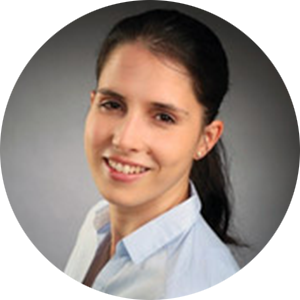 Anja Trapp, Scientist, Bioprocessing Technology & Innovation, Rentschler-Biopharma
Anja Trapp, Scientist, Bioprocessing Technology & Innovation, Rentschler-Biopharma
New strategies improving protein purification are an inevitable prerequisite for next-generation processes. Our generic buffer system enables a smart development of a simple and economic production process. On this basis, a modular toolbox of separation
techniques is used to achieve the desired product quality and purity. The talk will give insights into our flexible approach in form of different case studies.
9:30 A Novel Alkaline Stable Protein A Resin Based on Monodisperse Agarose Beads
Hans J. Johansson, Global Applications Director – Agarose, Purolite Life Sciences
In contrast to batch emulsification, by utilising a scalable continuous emulsification technology termed ‘jetting’ - beads with a very narrow particle distribution have been manufactured, omitting the need for sieving, and resulting in
almost quantitative yield. The performance data of a new range of chromatography resins will be presented.
 9:45 Chromassette: A Stackable, Resin-Agnostic Chromatography Cassette for Intensified Manufacturing
9:45 Chromassette: A Stackable, Resin-Agnostic Chromatography Cassette for Intensified Manufacturing
Guido Stroehlein, MBA, Global Director Technology and Development, JSR Life Sciences
10:00 Multi-Component Adsorption as a Challenge for Process Chromatography
 Rainer Hahn, PhD, Associate Professor, Department of Biotechnology, BOKU
Rainer Hahn, PhD, Associate Professor, Department of Biotechnology, BOKU
Chromatography is the most effective method when it comes to preparative protein separation, as it provides the highest selectivity and resolution power. However, with complex feed stocks many adsorption systems are not in equilibrium or even far
away from it, even if the chromatographic separation is performed at low velocity. Several examples of such systems will be shown and methods to overcome limitations in chromatographic processing will be discussed.
10:30 Coffee Break in the Exhibit Hall. Last Chance for Poster Viewing.
11:15 Continuous Chromatographic Purification of Exosomes
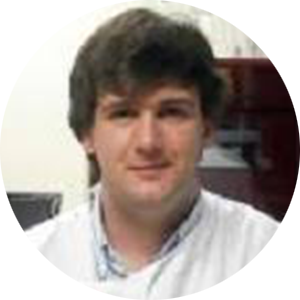 Ricardo Jorge Sousa da Silva, PhD, Researcher,
iBET
Ricardo Jorge Sousa da Silva, PhD, Researcher,
iBET
Extracellular vesicles, more particularly exosomes, are nanostructures of great medical interest. Similar to other complex biopharmaceuticals such as viruses, the purification of these nanovesicles is still a considerable challenge. Here we describe
an efficient and scalable purification strategy based in multi-column chromatography.
11:45 Improving Oncolytic Virus Biomanufacturing to GMP Compatible Bioprocess
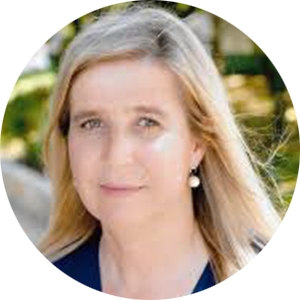 Cristina Peixoto, PhD, Head, Downstream Processing Laboratory, IBET
Cristina Peixoto, PhD, Head, Downstream Processing Laboratory, IBET
Oncolytic virotherapy represents a new class of cancer drugs. The rise of the number of clinical trials using this virus generates the demand to develop an improved purification platform to lower costs of treatments. Herein we will present and discuss
the challenges on the purification of oncolytic adenovirus for clinical trials, the strategies and novel technologies to be adopted in order to enable a faster development of novel vectored vaccine candidates focusing on several case studies,
supported by process technology innovation.
12:15 A New Developed Chromatographic Platform Based on a Single-Column
 Abimaelle Chiberio, PhD Student, Universidade Nova de Lisboa
Abimaelle Chiberio, PhD Student, Universidade Nova de Lisboa
Downstream processing represents up to 80% of the costs of biopharmaceuticals. However, the biopharmaceutical economy started to demand an evolution in the downstream part, in order to reduce the costs of the biopharmaceutical production process.
A newly developed chromatographic platform based on a single-column device mimics the operation and performance of recent multicolumn capture and polish processes designed for the efficient separation and purification of monoclonal antibodies
and biosimilars.
12:45 Luncheon Presentatio: The Perfect Recipe for Protein Characterization Starts with Tycho and Knowing Protein Quality
Peter Fung, PhD, Senior Manager, Product Marketing, NanoTemper Technologies, inc.
13:15 Session Break
13:45 Chairperson’s Remarks
Cristina Peixoto, PhD, Head, Downstream Processing Laboratory, IBET
13:50 DuoBody Technology: A Versatile Platform for Bispecific Antibody Discovery and Development
 Rick Hibbert, PhD, Assistant Director, Genmab
Rick Hibbert, PhD, Assistant Director, Genmab
The DuoBody® platform is a versatile and dependable technology for generating bispecific antibodies. Unlike other bispecific antibody platforms, the process is based on controlled Fab-arm exchange, which is performed post-production using purified
monospecific antibodies. The process yields bispecific antibodies that retain the molecular structure and quality attributes of therapeutic IgGs. Case studies are presented detailing downstream processing approaches in the development of a range
of bispecific antibody therapeutics.
14:20 The Time Has Come – More Control in Inclusion Body Processing
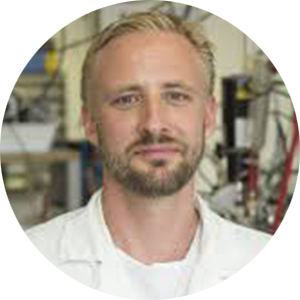 Oliver Spadiut, PhD, Associate Professor, Integrated Bioprocess Development, TU Wien
Oliver Spadiut, PhD, Associate Professor, Integrated Bioprocess Development, TU Wien
Inclusion body processing is still based on empiricism rather than sound process knowledge. State-of-the-art refolding processes mostly happen in unmonitored dilution approaches giving a lot of misfolded product and low space-time-yields. I will present
how we tackle this challenge by introducing more monitoring and control in these processes. I will present case studies for three different proteins.
14:50 Process Development Considerations for Novel Highly Potent Recombinant Proteins
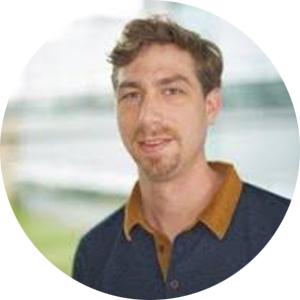 David Gruber, PhD, Head, Downstream Processing, Ipsen Biopharm
David Gruber, PhD, Head, Downstream Processing, Ipsen Biopharm
Botulinum neurotoxin is effective in the treatment of several movement disorders. Native BoNT/A is comprised of a family of highly related neurotoxins produced by Clostridium botulinum bacteria and BoNT/A (subtype A1) is notable as the strain
used to produce the commercial products such as abobotulinumtoxinA (Dysport). An increased understanding of the structure-function relationship of BoNT provides an opportunity to engineer recombinant (r) BoNTs with unique pharmacologic properties
and therapeutic applications. This presentation will describe the challenges and opportunities associated with process development and GMP manufacture for rBoNT products.
15:20 Close of Conference